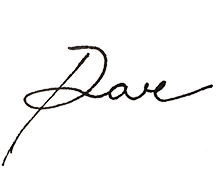When I quit my job in politics 12 years ago this May, my dream was to become an author and speaker and to take up a mission of helping people reclaim the meaning of leadership for themselves.
In our society, “leadership” is an exclusionary term. The word “leadership” and the title of “leader” are usually used to distinguish “haves” from “have nots.”
Our society teaches us to typically associate “leaders” as those who are qualified by their {often male and often white} privilege: their wealth, their status, their followers.
But I believe that leadership is a quality of the heart, and not qualified by followers.
I believe that we can lead without followers.
Today, I’d like to invite you to reflect upon what the words “leader” and “leadership” mean to you.
What personal history do you have with those words? What story do you tell yourself when you hear them? Is that the story you want to be telling? Is that the story you want to be living?
Let’s unpack their story through your own lens and your own point of view.
7 Prompts to Redefine the Meaning of Leadership, For Yourself
1. When you hear the word “leader,” what is the first thing that comes to mind? What do you see? What feelings arise? What sensations are evoked, and where can you feel them in your body?
2. When you think of what “leadership” means, what do you think of, first? Do you think of power, influence, impact, or other external-dependent qualities? Do you think of internal qualities, like choice, personal responsibility, caring?
3. Who do you instinctively consider to be “leaders” in our world today? List 3-5 roles that you typically think of as “leaders,” instinctively.
4. Who else in our society also embody, imbue, and exhibit “leadership” — even of a quiet type, a leadership by example, a leadership without followers? List 3-5 roles that come to mind.
5. What are the top qualities that you suspect govern, inspire, or influence those quiet leaders or leaders without followers? What motivates them?
6. If it is true that people can exhibit and demonstrate leadership without followers or fanfare, from where do you suppose these people derive their leadership? In other words, who or what grants them their “right” to lead? How do they earn the right to lead? Through what actions, deeds, dedication, or perseverance?
7. Look back on your original answers for Prompts #1 and #2, compared to your answers in Prompts #5 and #6. How would you prefer to personally define the word “leader,” from now on? What would you change? How would you prefer to define what “leadership” means, to you?
What did you discover, friend?
Were you able to break down some of the loaded stories contained within these two words? How did it feel to write those stories for yourself; to deprive them of the stories they originally told; to assign them a power of your own making?
I hope you enjoyed this exercise.
Remember, our stories — the ones we tell ourselves, and the ones that others tell for us — are still our own to make, break, or redefine.
You possess incredible authority. Assign your authority well, and with loving care. Take the responsibility personally.
If you are called to lay claim to your personal leadership inklings — or to deepen into your change-making, healing, teaching, storytelling, writing, or business building — join me in Claim Your Calling℠ for the next six months.
I would be honored to guide, support, and uplift your journey with my 12 years of experience, alongside a cozy community of creative, heart-centered peers.
Just three seats remain before we close our doors.
Happy Sunday to you. Thanks for playing along.

